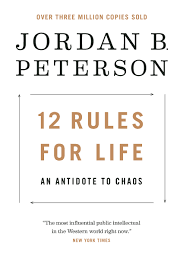In a day when so many of us think we are RIGHT while so many others are WRONG, Reinhold Niebuhr’s neglected classic, The Irony of American History, deserves wide reading. Published the year I was born (1952), in the context of a world dominated by the sharply defined conflict between democracy and communism, its clear message is still important today.
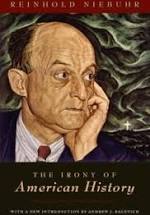 As much as we would like to change the world (regardless of our ideals from the right or left), we inevitably bump into both our finiteness and our selfishness (or guilt, as Niebuhr calls it). When we ignore these limitations, trouble inevitably follows, sometimes tragically on a massive scale.
As much as we would like to change the world (regardless of our ideals from the right or left), we inevitably bump into both our finiteness and our selfishness (or guilt, as Niebuhr calls it). When we ignore these limitations, trouble inevitably follows, sometimes tragically on a massive scale.
The problem is that in our idealism we are “too blind to the curious compounds of good and evil in which the actions of the best men and nations abound” (p. 133). Aleksandr Solzhenitsyn echoed Niebuhr when he famously said, “The line separating good and evil passes not through states, nor between classes, nor between political parties either – but right through every human heart.”
The world is just immensely more complicated than we can imagine or give credit for. We forget, as Niebuhr says, that we are not just a creator of history but also its creature. Therefore, our overly energetic attempts to control it are sure to be met with disappointment or worse.
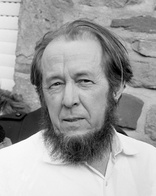 Throughout the book Niebuhr is a penetrating critic of communism’s flaws and failings, saying, for example, “Communism is a vivid object lesson in the monstrous consequences of moral complacency about the relation of dubious means to supposedly good ends” (p. 5). Yet he is also clear-eyed about how the American experiment can go haywire.
Throughout the book Niebuhr is a penetrating critic of communism’s flaws and failings, saying, for example, “Communism is a vivid object lesson in the monstrous consequences of moral complacency about the relation of dubious means to supposedly good ends” (p. 5). Yet he is also clear-eyed about how the American experiment can go haywire.
Free market thinking, for example, is very aware of the dangers of political and military power (especially seeking to limit the former) but downplays the reality of economic power, and sees little need to limit that. Part of the pragmatic virtue (and irony) of the American system is that we were able to recognize this and act on it at least somewhat. The labor movement and the New Deal of the last century created more financial equity and justice while still allowing capitalism to continue to dominate our theories.
Writing about the early 20th century he said, “The significant point in the American development is that here, no less than in Europe, a democratic political community has had enough virtue and honesty to disprove the Marxist indictment that government is merely the instrument of privileged classes” (p. 100).
America’s potential problems extend into other realms as well. “The American situation is such a vivid symbol of the spiritual perplexities of modern man, because the degree of American power tends to generate illusions to which a technocratic culture is already too prone. This technocratic approach to problems of history . . . accentuates a very old failing in human nature: the inclination of the wise, or the powerful, or the virtuous, to obscure and deny the human limitations in all human achievements and pretensions” (p. 147).
Niebuhr’s final chapter lays out what he means by irony—how two contrasting elements come together in a person or a nation with one arising from the other. A strength also contains a hidden weakness, for example. He goes on to highlight the foundation for this view of history, which comes from the biblical perspective of a “divine judge who laughs at human pretensions without being hostile to human aspirations” (p. 155).
Humility in spirit and modesty in ambition is not a message corporate kingpins, political powerbrokers, or even many humanitarian heroes want to hear. Such restraint does not suit them. Nor does pragmatism seem to rally a constituency as fervently as zealous idealism.
Yet his message is essential. That doesn’t mean we have no hope. Rather our hope and ideals are to be seasoned with realism about the world and with humility about ourselves.

 When a friend gave me his book, one of the most beautiful and profound works I’ve read, he wisely suggested I savor a few pages at a time. The depth of each page, of each paragraph, of each sentence made it worthwhile to do just that. Over the period of a few months I sojourned through this book.
When a friend gave me his book, one of the most beautiful and profound works I’ve read, he wisely suggested I savor a few pages at a time. The depth of each page, of each paragraph, of each sentence made it worthwhile to do just that. Over the period of a few months I sojourned through this book.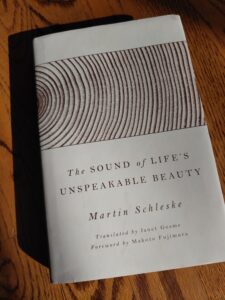
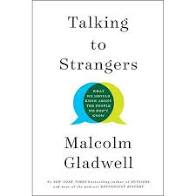
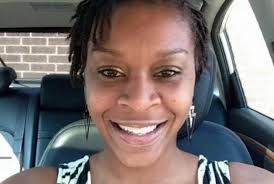 Gladwell begins and ends the book with the story of Sandra Bland, the 28-year-old African American who in 2015 was stopped for a minor traffic infraction, arrested, and committed suicide in jail three days later. He methodically unpacks the recorded July 10 encounter with State Trooper Brian Encinia.
Gladwell begins and ends the book with the story of Sandra Bland, the 28-year-old African American who in 2015 was stopped for a minor traffic infraction, arrested, and committed suicide in jail three days later. He methodically unpacks the recorded July 10 encounter with State Trooper Brian Encinia. 1. Read more. All the books were waiting that I’ve wanted to get to that I hadn’t had time for.
1. Read more. All the books were waiting that I’ve wanted to get to that I hadn’t had time for. My wife, Phyllis, needed to do it differently. She is such an activist I suggested she not make a plan or any long-term commitments for a year. Otherwise she would fill up her schedule without a clear sense of priorities. And I knew she would have plenty to do during that year, but she needed to organically see what her new rhythm of life would be. So she did. She spent the year continuing to be active with friends, family, discussion groups, and service opportunities. But no big plans.
My wife, Phyllis, needed to do it differently. She is such an activist I suggested she not make a plan or any long-term commitments for a year. Otherwise she would fill up her schedule without a clear sense of priorities. And I knew she would have plenty to do during that year, but she needed to organically see what her new rhythm of life would be. So she did. She spent the year continuing to be active with friends, family, discussion groups, and service opportunities. But no big plans. I suddenly became acutely aware of people around me serving food, cleaning tables, maintaining equipment, and many more. Clearly, I thought, I have not appreciated such people enough or sufficiently expressed my thanks. They (along with other more obvious examples of first responders and medical staff) were putting their health on the line to serve me and others, to keep society functioning, even if it was at a reduced level.
I suddenly became acutely aware of people around me serving food, cleaning tables, maintaining equipment, and many more. Clearly, I thought, I have not appreciated such people enough or sufficiently expressed my thanks. They (along with other more obvious examples of first responders and medical staff) were putting their health on the line to serve me and others, to keep society functioning, even if it was at a reduced level.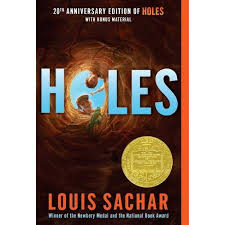
 In Lent we remember that all have sinned. None are righteous. As enlightened as I am, certain kinds of people infuriate me or repel me. That is not a morally superior response. That falls short.
In Lent we remember that all have sinned. None are righteous. As enlightened as I am, certain kinds of people infuriate me or repel me. That is not a morally superior response. That falls short. 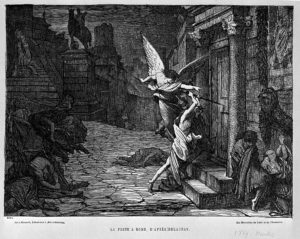 But there was one minority group that responded very differently to both plagues. They stayed in the cities. Rather than avoiding the sick, they cared for them. As a result of receiving simple food and water when the ill were too weak to look after themselves, many survived when others who were forsaken by their friends and families died at a much higher rate. Some of those in this special group of caretakers also contracted the disease, however, and died. Why did they do this, knowing the danger? Why did they act so differently than many of their neighbors?
But there was one minority group that responded very differently to both plagues. They stayed in the cities. Rather than avoiding the sick, they cared for them. As a result of receiving simple food and water when the ill were too weak to look after themselves, many survived when others who were forsaken by their friends and families died at a much higher rate. Some of those in this special group of caretakers also contracted the disease, however, and died. Why did they do this, knowing the danger? Why did they act so differently than many of their neighbors? 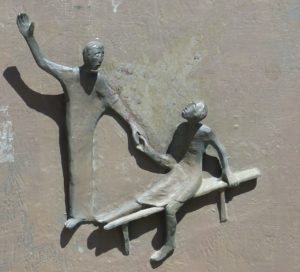 Israel was to openly accept people of every ethnic group and nation to Jerusalem as Jesus reminded them: “My house will be called a house of prayer for all nations” (Mark 11:17). We as Christians should also gladly receive people from all nations to our churches, our communities, and our countries. We can fulfill the Great Commission not only by going to all nations but also by encouraging people of all nations to come to us. In this way they can hear and see and experience the gospel in ways that may not be possible in their home nations, where Christianity is illegal or suppressed. This is what Christians do—what mission-minded Christians do.
Israel was to openly accept people of every ethnic group and nation to Jerusalem as Jesus reminded them: “My house will be called a house of prayer for all nations” (Mark 11:17). We as Christians should also gladly receive people from all nations to our churches, our communities, and our countries. We can fulfill the Great Commission not only by going to all nations but also by encouraging people of all nations to come to us. In this way they can hear and see and experience the gospel in ways that may not be possible in their home nations, where Christianity is illegal or suppressed. This is what Christians do—what mission-minded Christians do. 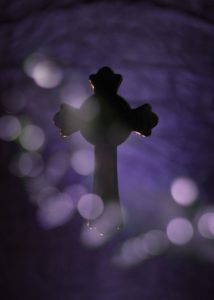 One thing that ironically gives me a glimmer of comfort is that the Bible doesn’t attempt to answer those sorts of questions the way so many try. When Job made such a challenge to God, God did not respond with the kind of answers we or Job might want. Instead he says to Job, my wisdom is seen in how I made the immensities and intricacies of the heavens and earth. Can you trust my wisdom for everything you don’t see?
One thing that ironically gives me a glimmer of comfort is that the Bible doesn’t attempt to answer those sorts of questions the way so many try. When Job made such a challenge to God, God did not respond with the kind of answers we or Job might want. Instead he says to Job, my wisdom is seen in how I made the immensities and intricacies of the heavens and earth. Can you trust my wisdom for everything you don’t see? Jagged edges appear elsewhere too. A family member gets ill. We feel betrayed by a friend. Someone rear ends us. These and more pile up till we snap back harshly at those we love most. We fail to live up to our own standards of honesty, loyalty, charity.
Jagged edges appear elsewhere too. A family member gets ill. We feel betrayed by a friend. Someone rear ends us. These and more pile up till we snap back harshly at those we love most. We fail to live up to our own standards of honesty, loyalty, charity. The verb Rutledge frequently uses in her book to convey this action which justifies and makes righteous is to rectify. The world and all of us in it need to be rectified, to be set right.
The verb Rutledge frequently uses in her book to convey this action which justifies and makes righteous is to rectify. The world and all of us in it need to be rectified, to be set right. 